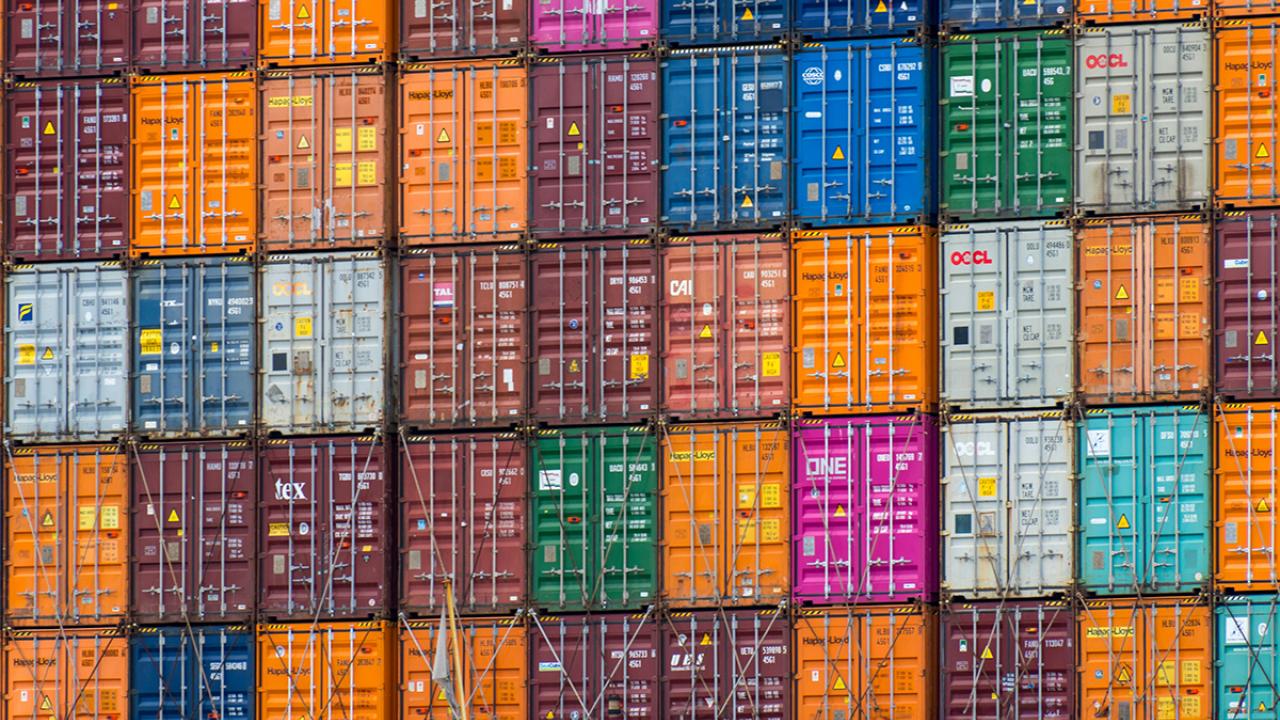
Tariffs may be coming back next year. Following the tariffs that launched a trade war with China in 2018, the first new tariffs may target Canada and Mexico, the two largest U.S. trading partners.
A new UC Davis study in economics looks back at the history of U.S. tariffs and finds that from 1870 to 1909, tariffs made U.S. businesses weaker, not stronger. Tariffs reduced the average size of businesses while increasing the price of what they produced. Because tariffs work the same way they did 100 years ago, these findings have relevance today.
“We'd like to have a healthy competitive environment in our industries, and tariffs tend to limit the amount of competition because they exclude foreign competitors from the market,” said Christopher Meissner, a professor of economics in the College of Letters and Science at UC Davis and an author on the study.
What are tariffs?
A tariff is a tax a government imposes on imported foreign products. Domestic companies that import those products pay the tariff and are likely to pass that cost onto consumers, ultimately increasing prices. A tariff reduces domestic competition with foreign companies by increasing the costs of importing their products. As a type of tax, tariff revenues go to the government that imposes it.
“If the government doesn't want people to buy T-shirts or cars from another country, they can put a pretty high tax on those things at the border — a tariff — and hope that will hit the consumer in the pocketbook,” said Meissner.
How tariffs reduce innovation and productivity
Meissner is a leading expert on international trade. His recent book One from the Many: The Global Economy Since 1850, details the economic history of the global economy, grounding the idea of globalization in the technologies that made it possible.
Meissner’s latest study looks to the early years of the U.S. to measure how tariffs affected the economy back then. In U.S. economic policy, tariffs date back to the nation’s founding. Alexander Hamilton, one of the founding fathers, believed that tariffs and other protections from foreign competition would make U.S. industries more productive and competitive.
This new analysis showed the exact opposite to be true. An increase in tariffs by 10 percentage points reduced domestic productivity by between 25% and 35%.
“Less competitive industries are less innovative, and less innovative industries are less productive,” said Meissner. “Tariffs probably weakened the incentives to innovate and come up with streamlined processes that keep companies on their toes and productivity high.”
How tariffs will affect today's consumers and economy
While the way tariffs work hasn’t changed in 100 years, the U.S. economy has. Today, the U.S. service sector is much larger than the manufacturing sector. At the same time, imports affect everything we buy. Tariffs mean everyone will pay more.
“It’s a much more complicated world, but the net result is probably going to be similar in a lot of respects,” said Meissner. “Whether that's the cost of a new sweatshirt at Walmart or a dinner out, tariffs are going to raise the price level all around.”
Today, the U.S. also faces a threat that was much smaller in the late 19th century. Other countries are much more likely to retaliate, as China retaliated immediately with their own tariffs once the trade war began in 2018 under the first Trump administration.
“Once we start raising tariffs on our main trading partners as is proposed, they're certainly going to retaliate, and those retaliations will offset many of the positive effects, if there are any,” said Meissner.
YOU MAY ALSO LIKE THESE STORIES

New Book Charts Globalization’s Economic History by the Technologies that Drive It
In his new book “One from the Many: The Global Economy Since 1850,” Professor of Economics Christopher Meissner details the economic history of the global economy, grounding the idea of globalization in the technologies that have made it possible.

Avoiding the Next Infant Formula Supply Crisis
In 2022, the nation’s largest infant formula manufacturer sent new parents scrambling when it launched a product recall that sparked shortages nationwide. UC Davis researchers contributed to a national report that identifies the causes of the shortages and detailed recommendations for securing formula supplies.
